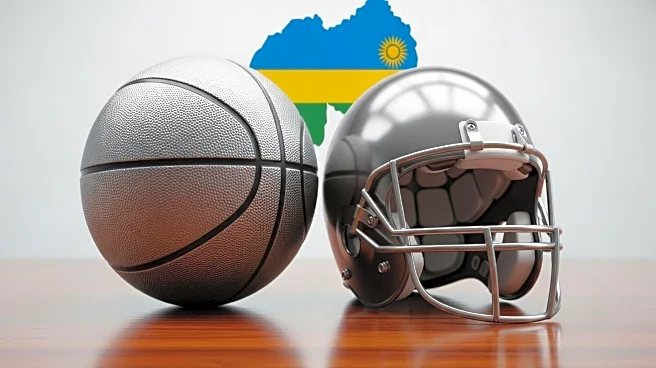What is the story about?
What's Happening?
The Los Angeles Rams and LA Clippers have entered into sponsorship agreements with the Rwandan government, aiming to promote tourism to the East African nation. The 'Visit Rwanda' slogan will feature prominently on the Clippers' jerseys and be advertised at the Rams' SoFi Stadium. These deals are part of Rwanda's broader strategy to enhance its international sports presence, despite facing criticism for its human rights record. The agreements are described as multiyear, though specific financial details remain undisclosed. Rwanda has similar arrangements with other sports entities, including a notable deal with Arsenal, reportedly worth at least $12 million annually. The NBA's involvement in Rwanda, including the establishment of the Basketball Africa League, has been encouraged by the U.S. government, despite ongoing human rights concerns.
Why It's Important?
These sponsorship deals highlight the intersection of sports, politics, and international relations. By partnering with major U.S. sports teams, Rwanda seeks to boost its global image and tourism industry. However, the country's human rights record, including allegations of political repression and involvement in regional conflicts, raises ethical questions about such partnerships. The deals also reflect the growing trend of sports organizations engaging with international markets, often navigating complex political landscapes. For the Rams and Clippers, these agreements could enhance their brand visibility and fan engagement, but they also risk criticism from human rights advocates and stakeholders concerned about the ethical implications of associating with Rwanda's government.
What's Next?
The sponsorship deals are likely to prompt further scrutiny from human rights organizations and political observers. The Rams and Clippers may face pressure to address the ethical concerns associated with their partnerships. Additionally, the NBA's ongoing involvement in Rwanda, including its business dealings and the Basketball Africa League, will continue to be monitored for compliance with international human rights standards. Stakeholders, including fans and advocacy groups, may call for greater transparency and accountability in these international sports collaborations.
Beyond the Headlines
The partnerships between U.S. sports teams and Rwanda underscore the broader trend of sports diplomacy, where nations use sports to improve their international standing. This strategy can lead to increased tourism and economic benefits for countries like Rwanda. However, it also raises questions about the role of sports in legitimizing governments with controversial records. The deals may influence how other sports organizations approach international partnerships, balancing commercial interests with ethical considerations.















